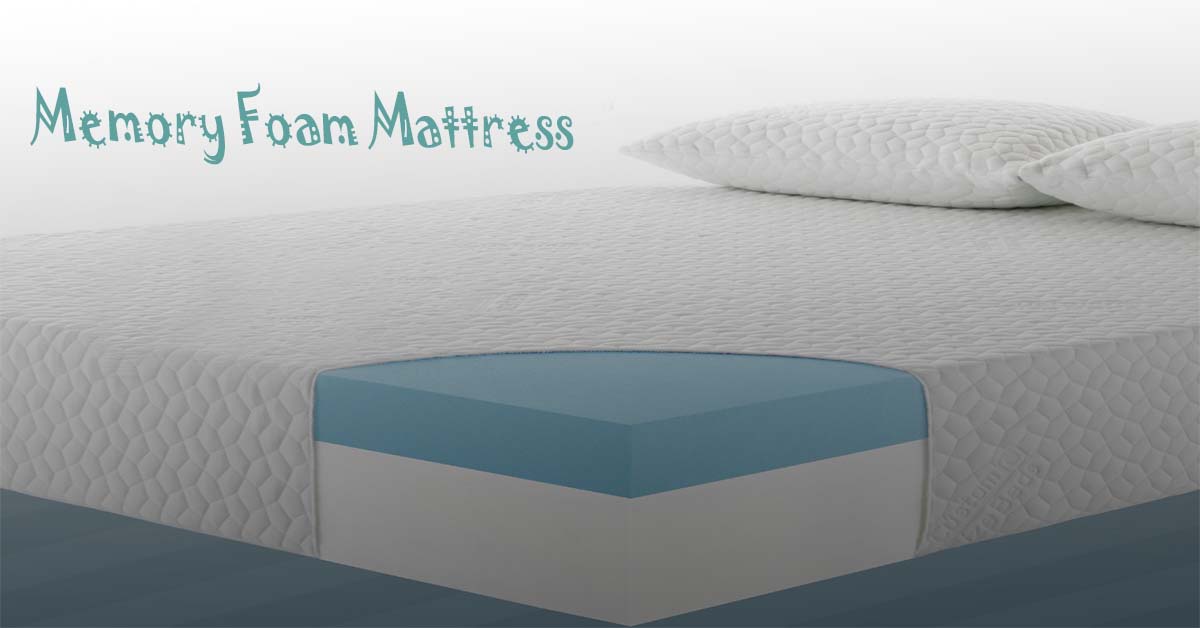Sleep is a vital part of our daily routine, and a good night's rest can significantly impact our overall well-being. One key factor contributing to a restful sleep experience is the mattress we choose. In recent years, memory foam mattresses have gained immense popularity for their unique ability to conform to the body's shape and provide exceptional comfort and support. In this article, we delve into the secrets of memory foam mattresses and explore why they have become a preferred choice for sleep enthusiasts worldwide.
What is Memory Foam?
Memory foam is a type of polyurethane foam that has viscoelastic properties. It was originally developed by NASA in the 1960s to improve the safety and comfort of aircraft cushions. However, it was later introduced into the commercial market for various applications, including mattresses. Memory foam is renowned for its ability to soften when it comes into contact with body heat, allowing it to mold and contour to the shape of the sleeper's body.
Unique Features and Benefits of Memory Foam Mattresses
Memory foam mattresses offer several distinctive features and benefits that set them apart from traditional mattresses. Let's take a closer look at what makes memory foam mattresses a desirable choice for sleepers:
- Pressure Relief
One of the key advantages of memory foam mattresses is their exceptional pressure-relieving properties. The foam's ability to conform to the body's contours helps distribute body weight evenly, reducing pressure points and alleviating discomfort. This feature is especially beneficial for individuals with joint pain, back issues, or other conditions that require targeted support during sleep.
- Body Contouring and Support
Memory foam mattresses are designed to provide personalized support to each individual's body shape. As the foam contours to the sleeper's curves, it helps maintain proper spinal alignment, which is essential for a healthy sleep posture. This support promotes better blood circulation and can minimize the risk of developing aches and pains associated with poor sleeping positions.
- Motion Isolation
Another notable advantage of memory foam mattresses is their superior motion isolation properties. The dense and viscoelastic nature of memory foam absorbs movement and reduces the transfer of motion across the mattress. This is particularly beneficial for couples or individuals sharing a bed, as it minimizes disturbances caused by movement during sleep, allowing for uninterrupted rest.
- Allergy-Friendly and Dust Mite Resistant
Memory foam mattresses are naturally hypoallergenic and resist dust mites, making them an excellent choice for individuals with allergies or respiratory sensitivities. The dense structure of the foam prevents the accumulation of allergens, such as dust mites, pollen, and pet dander, ensuring a cleaner and healthier sleep environment.
- Durability and Longevity
High-quality memory foam mattresses are known for their durability and longevity. They are designed to retain their original shape and resilience for an extended period, offering consistent comfort and support over time. However, it is essential to choose a reputable brand and consider factors such as foam density and thickness to ensure optimal durability.
- Temperature Regulation
Memory foam mattresses have evolved over the years to address the issue of heat retention, which was a concern with early models. Many modern memory foam mattresses now incorporate advanced cooling technologies, such as open-cell foams and gel-infused layers, to enhance breathability and prevent overheating. These innovations help regulate body temperature, promoting a cooler and more comfortable sleep environment.

Factors to Consider when Purchasing a Memory Foam Mattress
When shopping for a memory foam mattress, it is important to consider the following factors to ensure you select the best option that caters to your specific needs:
- Foam Density
Foam density refers to the weight of the memory foam per cubic foot. Higher density foam typically offers better durability, support, and pressure relief. A density of 4 to 5 pounds per cubic foot is considered ideal for a memory foam mattress.
- Thickness and Layers
Consider the thickness and arrangement of the mattress layers. A thicker mattress with multiple layers can provide enhanced comfort and support. Look for a combination of a supportive base layer, a transition layer for contouring, and a plush top layer for added comfort.
- Firmness Level
Memory foam mattresses come in various firmness levels, ranging from soft to firm. The right firmness depends on personal preferences and sleep positions. Side sleepers may prefer a softer mattress for better pressure relief, while back or stomach sleepers may opt for a firmer mattress for optimal spinal alignment.
- Certifications
Check if the memory foam mattress has certifications such as CertiPUR-US® or Oeko-Tex® Standard 100. These certifications ensure that the mattress is free from harmful chemicals and meets strict quality standards.
- Trial Period and Warranty
Look for brands that offer a generous trial period, allowing you to test the mattress in your own home. Additionally, check the warranty coverage, which should protect against manufacturing defects and ensure peace of mind.
- Price and Budget
Set a budget for your memory foam mattress purchase and compare prices among different brands. Remember that investing in a high-quality mattress is a long-term investment in your sleep quality and overall well-being.
Caring for Your Memory Foam Mattress
To prolong the lifespan of your memory foam mattress and maintain its performance, follow these care tips:
- Rotate the mattress every few months to distribute wear evenly.
- Use a mattress protector to shield against spills, stains, and dust.
- Vacuum the mattress regularly to remove dust and debris.
- Avoid jumping or standing on the mattress to prevent damage.
- Follow the manufacturer's instructions for cleaning and maintenance.


No comments yet